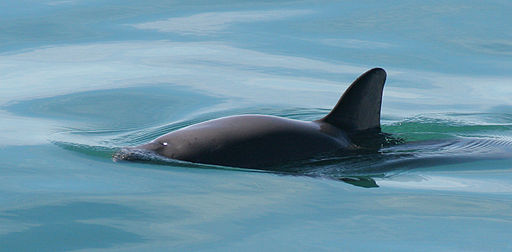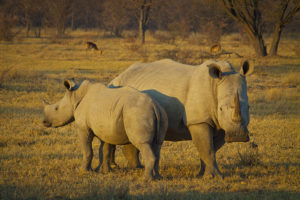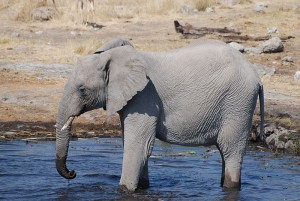Only 30 Vaquita Left In The Wild
Just 30 vaquitas, the world’s smallest porpoise, are left in the wild due to illegal gill net fishing causing their numbers to plummet by 90% in recent years.
 Image: By Paula Olson, NOAA [Public domain], via Wikimedia Commons
Image: By Paula Olson, NOAA [Public domain], via Wikimedia Commons The world’s smallest porpoise is in trouble. The population of vaquita has plummeted dramatically since 2011, by a total of 90%. Between 2015 and 2016 almost half the remaining population died, and now the International Committee for the Recovery of the Vaquita (CIRVA) has reported that just 30 individuals are left on the planet.
The vaquita lives exclusively in a small area in the Gulf of California, Mexico, where illegal fishing with gill netting is the main cause of their decline. Gill nets are used by fishermen to catch totoaba, another endangered species. This fish is in demand in Asia for their swim bladders which supposedly have medicinal properties. They can sell for as much as $10,000 per kilogram, causing them to be dubbed “aquatic cocaine.” The demand has grown in recent years, increasing the threat to vaquita, which get entangled in the nets and drown.
In 2015, the Mexican government enacted a two-year ban on gill nets in the home territory of the vaquita. This ban is soon to end, and it is not known if it will be continued. The ban was also not well enforced – in their report, CIRVA detailed 31 illegal gill nets during a 15-day survey in October and November 2016. Plus, there is a loophole in the ban that allowed gill nets to be used to catch corvina in legal fisheries, therefore making it possible for the nets to disguise illegal totoaba fishing.
“The already desperate situation has worsened, despite existing conservation measures and current enforcement efforts,” wrote the authors of the CIRVA report. “Unless this decline can be stopped by eliminating mortality in illegal gill nets, the vaquita will be extinct in a few years.”
Stronger enforcement of illegal gill net fishing is clearly needed, and another, more dramatic plan is also on the cards. In December, Mexican officials announced that scientists will attempt to capture some of the remaining vaquitas and transport them to a protected area where they can hopefully breed in safety. Some of the world’s top acoustic monitoring and porpoise capture experts will be involved, and so will the US Navy and its trained dolphins. The plan is due to start in spring, but it would be very tricky to catch them because they are shy and tend to avoid humans and boats, and they live in fairly cloudy water. Another concern is that vaquitas have never been caught before and it is unclear how they will respond to captivity, a reason why organisations such as World Wildlife Fund and Greenpeace have urged the Mexican government to reconsider their strategy.
“These are desperate times for the vaquita as it staggers toward the brink of extinction. Therefore, it is not surprising that the solutions which are being suggested by those who want to save the species are also, increasingly, more desperate,” Gustavo Ampugnani, executive director of Greenpeace Mexico. “[But] this drastic measure will do very little if the underlying problem ― totoaba fishing and the use of gillnets ― has not been solved. We know what must happen to save the vaquita in their natural habitat: cease the fishing of totoaba, not only with surveillance, but also with the application of socio-economic policies to support the region, involve communities in the protection of the vaquita, and develop fishing gear that does not endanger other species.”
Whichever strategy is ultimately adopted, we must act fast, as time is running out for the vaquita.





No comments yet.